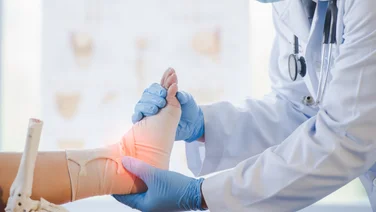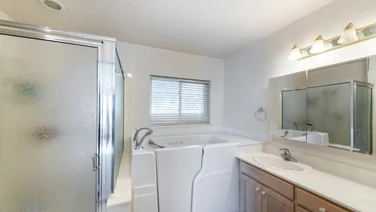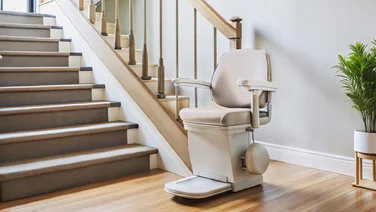Medical alarms, also known as personal emergency response systems (PERS), are devices designed to provide immediate assistance in the event of a fall, accident, or medical emergency.
These alarms connect users to the emergency services or caregivers with the push of a button, pull of a cord or medical sensor, and send a signal to a carer or emergency worker helping individuals who are elderly, disabled, or have medical conditions that increase their risk of injury get help and to safety quickly.
Medical alarms come in various forms, such as:
- Pendant alarms: Worn around the neck or wrist, these devices allow users to press a button to call for help.
- Fall detection alarms: These are equipped with sensors that automatically detect falls and alert emergency services, even if the user is unable to press the button.
- Smartphone-based alarms: Usually are or devices that are linked to smartphones, providing emergency alert features with additional health monitoring options such as heart rhythm monitors or temperature alerts.
You can also have single-button alarms, voice-activated wall buttons, and epilepsy sensors. Most PERS offer round-the-clock care, and many will often have two-way communication enabled for added security.
GPS tracking alarms contained within the PERS also help pinpoint the exact location of an individual when away from home, meaning help can be sent quickly.
Benefits of Medical Alarms
Reliable, durable, and reassuring, medical alarms do more than just give peace of mind. Here are the main advantages of personal emergency response systems:
- Fast-trackAccess to Help: Medical alarms provide immediate access to the emergency services or caregivers, ensuring you receive help quickly in a medical emergency or fall. They connect you to a trained operator who will assess the situation and dispatch the necessary assistance.
- Increased Independence: With a medical alarm, you can continue living independently in your own home, knowing that help is always near. This increased security can help you remain confident while going about your daily activities, whether cooking, gardening, or taking a walk around the house.
- Peace of Mind for You and Your Loved Ones: Medical alarms offer reassurance to you and your family, knowing that help is available 24/7. This comfort can be particularly valuable for those living alone or with limited mobility, as well as for family members who may not always be nearby.
- Fall Detection and Prevention: Advanced medical alarms with fall detection sensors can automatically alert emergency services if a fall occurs, even if you cannot call for help. This feature is especially useful for those at a higher risk of falls, such as individuals with balance issues, osteoporosis, or certain medical conditions.
- User-Friendly Design: Medical alarms are designed to be easy to use, with large buttons and simple instructions, making them suitable for people of all ages and technological abilities. Many devices are also waterproof, allowing you to wear them in the shower or bath, where falls are more likely to occur.
- Reliable and Durable: These devices are designed for continuous use, with long battery life and dependable performance. Many medical alarms are monitored 24/7 by professional call centres, ensuring a quick response when needed.
How to Get Started With a Medical Alarm
Getting a medical alarm is straightforward. Here’s what the process typically involves:
- Consultation and Needs Assessment: Schedule an initial consultation to discuss your specific needs, lifestyle, and medical history to determine the best type of medical alarm for you.
- Choosing the Right Device: Based on the assessment, select from various options, such as pendant alarms, fall detection devices, or smartphone-based systems, depending on your preferences and needs
- Installation and Setup: Once you’ve chosen your device, it will be set up in your home. Most devices are easy to install and require minimal technical knowledge, with customer support available to assist with any questions
- Ongoing Support and Monitoring: Many providers offer ongoing monitoring, testing and customer support to ensure your device is always ready to use. Regular check-ins and maintenance help keep your device functioning optimally.






